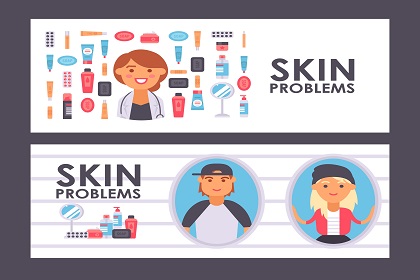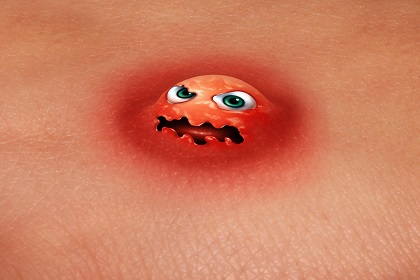Search
Related Articles

Tretinoin Cream (0.1%,0.025%) Patient Informatio
What is this drug used for?For the adjunctive treatment of acne vulg
Rifampin (Rifampicin) Capsule 150mg Patient Educ
What is this drug used for?1. It is used to stop the spread of menin
Isotretinoin Soft Capsules (10mg) Patient Inform
What is this drug used for?It is used to treat pimples (acne).How is
What is this drug used for?
• It is used to thin the blood so that clots will not form.
• It is used to treat blood clots.
Warning
• Do not stop taking this drug without talking to the doctor who ordered it for you. Stopping this drug when you are not supposed to may raise the chance of blood clots. This includes stroke in certain people. You may need to stop this drug before certain types of dental or health care. Your doctor will tell you when to start taking it again. Follow what your doctor tells you closely.
• People who have any type of spinal or epidural procedure are more likely to have bleeding problems around the spine when already on this drug. This bleeding rarely happens, but can lead to not being able to move body (paralysis) long-term or paralysis that will not go away. The risk is raised in people who have problems with their spine, a certain type of epidural catheter or have had spinal surgery. The risk is also raised in people who take any other drugs that may affect how the blood clots like blood-thinner drugs (like warfarin), aspirin, or nonsteroidal anti-inflammatory drugs (NSAIDs). Talk to the doctor.
• Tell your doctor you use this drug before you have a spinal or epidural procedure. Call your doctor right away if you have any signs of nerve problems like back pain, numbness or tingling, muscle weakness, paralysis, or loss of bladder or bowel control.
• Talk with your doctor if you have recently had or will be having a spinal or epidural procedure. Some time may need to pass between the use of this drug and your procedure. Talk to your doctor.
What do I need to tell my doctor BEFORE I take this drug?
• If you have an allergy to dabigatran etexilate or any other part of this drug.
• If you are allergic to this drug; any part of this drug; or any other drugs, foods, or substances. Tell your doctor about the allergy and what signs you had.
• If you have bleeding problems.
• If you have had a heart valve replaced.
• If you have kidney problems.
• If you are taking any of these drugs: Dronedarone or ketoconazole.
• If you are taking rifampin.
• If you are taking or will be taking another drug like this one.
• If you are breast-feeding. Do not breast-feed while you take this drug.
• This is not a list of all drugs or health problems that interact with this drug.
• Tell your doctor and pharmacist about all of your drugs (prescription or OTC, natural products, vitamins) and health problems. You must check to make sure that it is safe for you to take this drug with all of your drugs and health problems. Do not start, stop, or change the dose of any drug without checking with your doctor.
What are some things I need to know or do while I take this drug?
• Tell all of your health care providers that you take this drug. This includes your doctors, nurses, pharmacists, and dentists. This drug may need to be stopped before certain types of surgery as your doctor has told you. If this drug is stopped, your doctor will tell you when to start taking this drug again after your surgery or procedure.
• Have blood work checked as you have been told by the doctor. Talk to the doctor.
• You may bleed more easily. Be careful and avoid injury. Use a soft toothbrush and an electric razor. Rarely, some bleeding problems have been deadly.
• If you fall or hurt yourself, or if you hit your head, call your doctor right away. Talk with your doctor even if you feel fine.
• If you are 65 or older, use this drug with care. You could have more side effects.
• If you are pregnant or you get pregnant while taking this drug, call your doctor right away.
What are some side effects that I need to call my doctor about right away?
WARNING/CAUTION: Even though it may be rare, some people may have very bad and sometimes deadly side effects when taking a drug. Tell your doctor or get medical help right away if you have any of the following signs or symptoms that may be related to a very bad side effect:
• Signs of an allergic reaction, like rash; hives; itching; red, swollen, blistered, or peeling skin with or without fever; wheezing; tightness in the chest or throat; trouble breathing, swallowing, or talking; unusual hoarseness; or swelling of the mouth, face, lips, tongue, or throat.
• Signs of bleeding like throwing up or coughing up blood; vomit that looks like coffee grounds; blood in the urine; black, red, or tarry stools; bleeding from the gums; abnormal vaginal bleeding; bruises without a cause or that get bigger; or bleeding you cannot stop.
• Very bad dizziness or passing out.
• Weakness on 1 side of the body, trouble speaking or thinking, change in balance, drooping on one side of the face, or blurred eyesight.
• Feeling confused.
• Feeling very tired or weak.
• Very bad headache.
• Very bad swelling.
• Very bad belly pain.
• Joint pain or swelling.
What are some other side effects of this drug?
All drugs may cause side effects. However, many people have no side effects or only have minor side effects. Call your doctor or get medical help if any of these side effects or any other side effects bother you or do not go away:
• Upset stomach.
• Stomach pain or heartburn.
• These are not all of the side effects that may occur. If you have questions about side effects, call your doctor. Call your doctor for medical advice about side effects.
• You may report side effects to your national health agency.
How is this drug best taken?
• Use this drug as ordered by your doctor. Read all the information given to you. Follow all instructions closely.
• Keep taking this drug as you have been told by your doctor or other health care provider, even if you feel well.
• Take with or without food.
• Swallow whole. Do not chew, open, or crush.
• Take with a full glass of water.
What do I do if I miss a dose?
• Take a missed dose as soon as you think about it.
• If it is less than 6 hours until the next dose, skip the missed dose and go back to the normal time.
• Do not take 2 doses at the same time or extra doses.
How do I store and/or throw out this drug?
• Store at room temperature.
• Store in a dry place. Do not store in a bathroom.
• Keep capsules in the bottle they come in and do not move to a pill holder.
• Keep lid tightly closed.
• Throw away any unused capsules left in bottle after 4 months.
• Keep all drugs in a safe place. Keep all drugs out of the reach of children and pets.
• Throw away unused or expired drugs. Do not flush down a toilet or pour down a drain unless you are told to do so. Check with your pharmacist if you have questions about the best way to throw out drugs. There may be drug take-back programs in your area.
General drug facts
• If your symptoms or health problems do not get better or if they become worse, call your doctor.
• Do not share your drugs with others and do not take anyone else's drugs.
• Some drugs may have another patient information leaflet. If you have any questions about this drug, please talk with your doctor, nurse, pharmacist, or other health care provider.
• If you think there has been an overdose, call your poison control center or get medical care right away. Be ready to tell or show what was taken, how much, and when it happened.
Reference:
- Previous: Lice Shampoo Patient Education
- Next: Bismuth Potassium Citrate Capsules Patient Information








